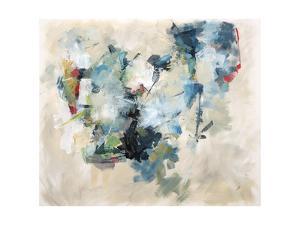
It’s always heard as an insult, this particular piece of advice. It’s what we tell people who’ve gone out on a limb to seek some kind of fulfillment that doesn’t offer immediate pay or benefits, usually after their early efforts at fulfillment result in singing/dancing/writing/macramé that doesn’t sound/look/read/hold its knots together so well. It’s also yet another reason lining up behind the thousands that are collecting to take a shot at artistic exploration, like so many disproportionately hostile kids waiting to dunk their beloved teacher in a shallow tank of water. And like the other members in its gang, this reason has a kernel of truth to it. It makes a certain amount of sense to never quit the job that keeps a roof over your head and food on your table. More than a certain amount. And it’s also unlikely that artistic endeavors, no matter how successful, will provide quite so successfully.
But is this such an ugly truth? It’s true that the lens through which we view our lives can sometimes change how we live them. I grew up with a mother who could not afford to quite her day job, which was raising the four of us while my dad worked 60+ work weeks to provide the shelter and education they both wanted for us. And in this household, don’t quite your day job was an insult. It was what my mother told herself when she couldn’t make time to work at her writing, and the writing stagnated, or didn’t develop according to plan, or was never seen as something that could develop and improve just as certainly as children can. So when I started to write, and the writing didn’t look good, I walked away from it, certain there would never be a reason to quit my day job(s).
But then, in an ironic twist of fate, my day job became full time caregiver to my own three children – and something critical shifted in my thinking. I suddenly didn’t have as much time to write, so the time I had I used ten times better. I suddenly cared about something more than my writing, and it freed up my creativity and sense of play. I suddenly realized that being a writer was nowhere near as interesting as living a life worth writing about. Not quitting my day job, it turns out, made me a heck of a better writer than hours spent in ivory towers and libraries, mooning about talents I could only hope to have. And lo and behold, I wrote a book. Then another. Then a few more.
It has never been easy. I still fight against my demons almost constantly. But in a sense, my mother did me the favor of showing me how dangerous it can be to swallow common wisdom about what make a writer a writer, what makes a mother a mother, and so on. And if I think about it too carefully, it doesn’t make sense that I can be a mother to three children and still write novels – just like it doesn’t make sense to look at a bee and suddenly understand the alchemy of honey, or to look at a great stretch of land in Texas and know that the world is round. Time and perception are much more flexible than we usually let on, and there are great reasons for this. Some of those reasons may never make sense to us in our lifetimes, but that doesn’t mean they need to work against us. Just because we don’t understand something, or don’t have a clear understanding of what lies ahead doesn’t mean that we must be suspicious of it, demonize it before it’s even drawn close. Which makes me wonder what other kinds of perceptions we might shift toward greater kindness and creativity if we can shift the ones we make about ourselves.
Art: The Opposite of Idleness, by Kari Taylor
Leave a Reply